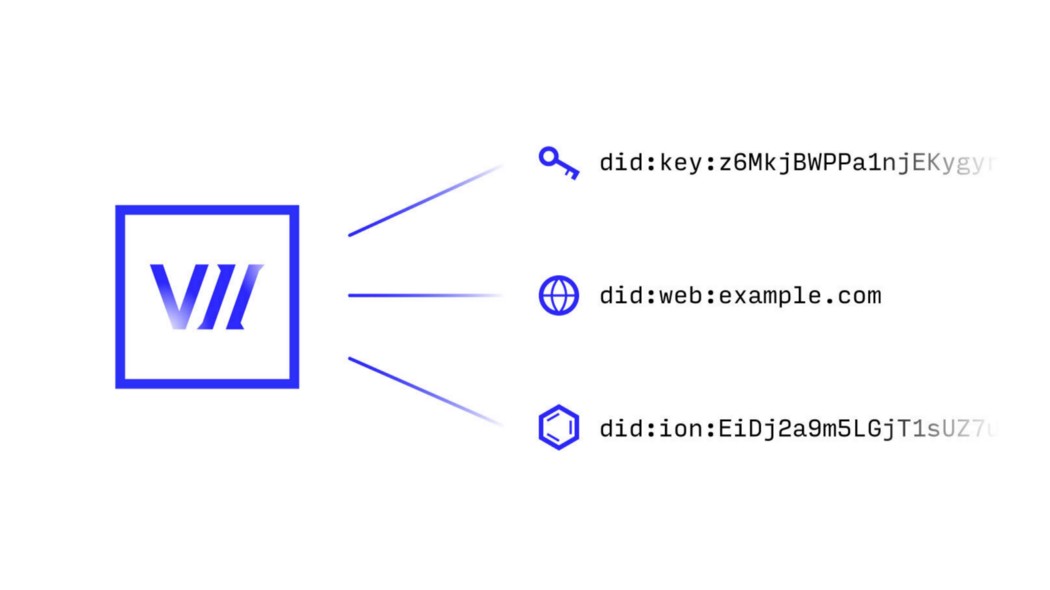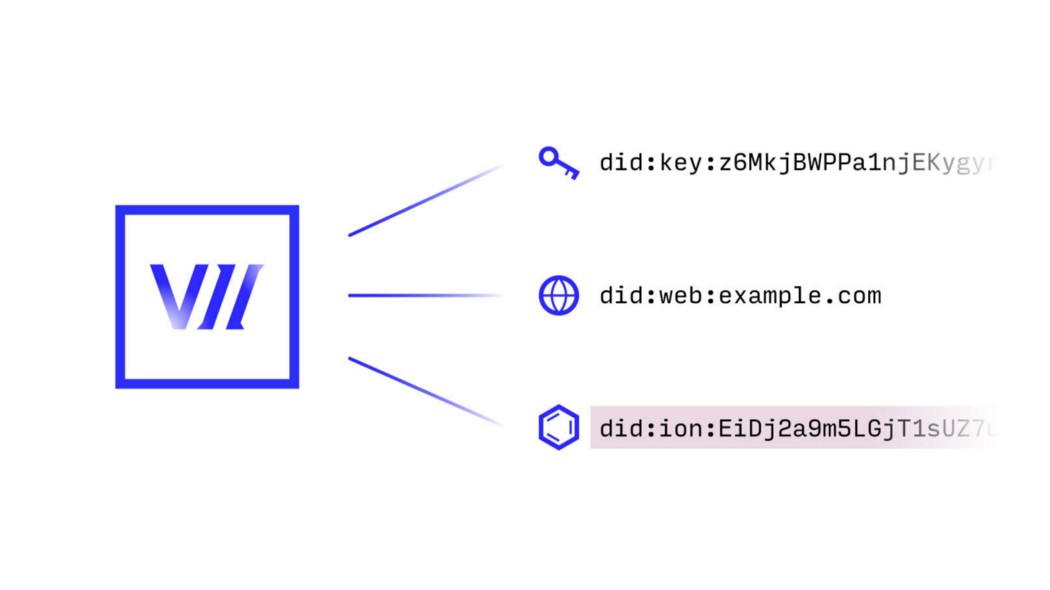Adding DID ION to MATTR VII
Nader Helmy • Sep 16, 2021 • 5 min read
Since the beginning of our journey here at MATTR, decentralization and digital identity have been central to our approach to building products. As part of this, we’ve supported Decentralized Identifiers (or DIDs) since the earliest launch of our platform. We’ve also considered how we might give you more options to expand the utility of these identities over time.
An important milestone
The W3C working group responsible for Decentralized Identifiers recently published the DID v1.0 specification under “Proposed Recommendation” status. This is a significant milestone as DIDs approach global standardization with the pending approval of the W3C Advisory Committee.
DIDs are maturing, but so is the environment and context in which they were originally designed. With a complex ecosystem consisting of dozens of different methodologies and new ones emerging on a regular basis, it’s important to balance the potential of this decentralised approach with a realistic approach for defining the real utility and value of each DID method. For example, the DID Method Rubric provides a good frame of reference for comparing different approaches.
Different types of DIDs can be registered and anchored using unique rules specific to the set of infrastructure where they’re stored. Since DIDs provide provenance for keys which are controlled by DID owners, the rules and systems that govern each kind of DID method have a significant impact on the trust and maintenance model for these identifiers. This is the key thing to remember when choosing a DID method that makes sense for your needs.
Our supported DID methods
In MATTR VII, by supporting a variety of DID methods — deterministic or key-based DIDs, domain-based DIDs, and ledger-based DIDs — we are able to provide tools which can be customised to fit the needs of individual people and organizations.

Key-based DIDs — Largely static, easy to create, and locally controlled. This makes them a natural choice for applications where there’s a need to manage connections and interactions with users directly.
DIDs anchored to web domains — These have a different trust model, where control over the domain can bootstrap a connection to a DID. This makes a lot of sense for organizations with existing domain names that already transact and do business online, and can extend their brand and reputation to the domain of DIDs.
Ledger-based DIDs — These offer a distributed system of public key infrastructure which is not centrally managed or controlled by a single party. While ledgers differ in their governance and consensus models, they ultimately provide a backbone for anchoring digital addresses in a way which allows them to be discovered and used by other parties. This can be a useful feature where a persistent identifier is needed, such as in online communication and collaboration.
There is no single DID method or type of DID (which at the moment) should be universally applied to every situation. However, by using the strengths of each approach we can allow for a diverse ecosystem of digital identifiers enabling connections between complex networks of people, organizations and machines. To date, we’ve provided support for three main DID methods in our platform: DID Key, DID Web, and DID Sovrin. These align with three of the central types of infrastructure outlined above.
Introducing DID ION
We’re proud to announce that as of today we’ve added support for DID ION, a DID method which is anchored to IPFS and Bitcoin. We’ve supported the development of the Sidetree protocol that underpins DID ION for some time as it has matured in collaboration with working group members at the Decentralized Identity Foundation.
With contributions from organizations such as Microsoft, Transmute, and SecureKey, Sidetree and DID ION have emerged as a scalable and enterprise-ready solution for anchoring DIDs. The core idea behind the Sidetree protocol is to create decentralised identifiers that can run on any distributed ledger system. DID ION is an implementation of that protocol which backs onto the Bitcoin blockchain, one of the largest and most used public ledger networks in the world.

Sidetree possesses some unique advantages not readily present in other DID methods, such as low cost, high throughput, and built-in portability of the identifier. This provides a number of benefits to people and organizations, especially in supporting a large volume of different kinds of connections with the ability to manage and rotate keys as needed. We have added end-to-end capabilities for creating and resolving DIDs on the ION network across our platform and wallet products.
Although DID ION is just one implementation of the Sidetree protocol, we see promise in other DID methods using Sidetree and will consider adding support for these over time as and when it makes sense. We’ll also continue to develop Sidetree in collaboration with the global standards community to ensure that this protocol and the ION Network have sustainable futures for a long time to come.
At the same time, the community around DID Sovrin is developing a new kind of interoperability by designing a DID method that can work for vast networks of Indy ledgers, rather than focusing on the Sovrin-specific method that’s been used to date. As DID Sovrin gets phased out of adoption, we’re simultaneously deprecating standard support for DID Sovrin within MATTR VII. We’ll be phasing this out shortly with upcoming announcements for customers building on our existing platform.
If you’ve got any use cases that utilise DID Sovrin or want to discuss extensibility options, please reach out to us on any of our social channels or at info@mattr.global and we’ll be happy to work with you.
Looking ahead
We believe this a big step forward in providing a better set of choices when it comes to digital identity for our customers. From the start, we have designed our platform with flexibility and extensibility in mind, and will continue to support different DID methods as the market evolves.
We look forward to seeing how these new tools can be used to solve problems in the real world and will keep working to identify better ways to encourage responsible use of digital identity on the web.
This blog was originally posted on Medium.
Get in touch with us
Our technologies give you powerful ways to build trust and prove things about people. If you’ve got a use case and want to see what it might look like, we’d love to talk to you about it.
More articles
Want to see more from MATTR HQ? Check out other articles below.


